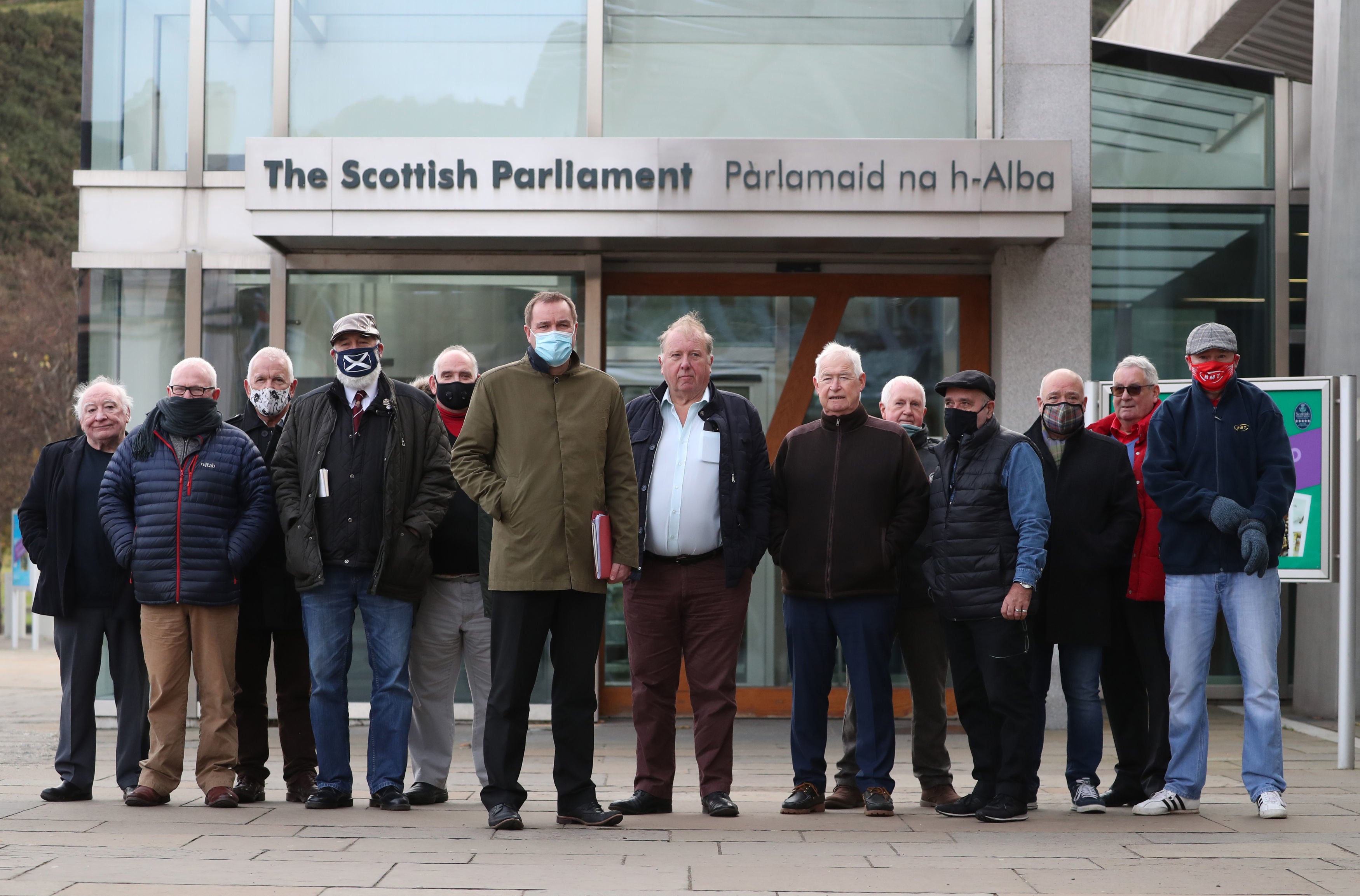Scotland to pardon hundreds of coal miners convicted after 1984 strike
The collective pardon will require new legislation, the Scottish government says

Your support helps us to tell the story
From reproductive rights to climate change to Big Tech, The Independent is on the ground when the story is developing. Whether it's investigating the financials of Elon Musk's pro-Trump PAC or producing our latest documentary, 'The A Word', which shines a light on the American women fighting for reproductive rights, we know how important it is to parse out the facts from the messaging.
At such a critical moment in US history, we need reporters on the ground. Your donation allows us to keep sending journalists to speak to both sides of the story.
The Independent is trusted by Americans across the entire political spectrum. And unlike many other quality news outlets, we choose not to lock Americans out of our reporting and analysis with paywalls. We believe quality journalism should be available to everyone, paid for by those who can afford it.
Your support makes all the difference.Scotland will pardon hundreds of coal miners convicted during the “bitter and divisive” year-long strike in the 1980s, the justice secretary has announced in light of a review of the impact of policing of mining communities.
Some 1,400 miners are believed to have been arrested during the national dispute, with more than 500 being convicted. Millions protested against pit closures during the industrial dispute with the Thatcher administration.
Humza Yousaf, the Scottish justice secretary, said new legislation would be introduced next year to offer a collective pardon to hundreds of miners who were arrested during the “bitter and divisive dispute”.
The pardon will also be applied to miners who have died since the 1984-5 strike.
Mr Yousaf said: “There is no doubt that many miners suffered great hardship because of the strike and convictions arising from it.
“Although the strike took place some 35 years ago, it is clear from conversations I have had with many miners the pain they feel is still very raw to this day.”
The justice secretary said the pardon “symbolises our desire for truth and reconciliation, following the decades of hurt, anger and misconceptions” which followed “one of the most bitter and divisive industrial disputes in living memory”.
He added that the pardon is intended to acknowledge the consequences of convictions that come out of the strike, including job losses.
A group of former miners gathered by the Scottish parliament awaiting Mr Yousaf’s announcement. Many had been convicted of minor offences during the strike and dismissed by the coal board.
John Scott QC, a human rights lawyer who chaired the review, recommended pardons for miners who were convicted of the minor common law offences such as breach of the peace. His review concluded the miners' actions would largely be unlikely to result in prosecution today.
The National Union of Mineworkers (Scotland) has welcomed the announcement.
Mr Yousaf said Scottish miners had been disproportionately punished, representing about 30 per cent of the UK total sacked by the National Coal Board, despite Scottish miners only making up seven per cent of the workforce.
The justice secretary told the Scottish parliament he had been “struck by the degree of commonality between miners and police officers” when they spoke of their memories of the strike.
“Many miners and police officers were young men with families – they spoke about how frightened they felt at times on the picket lines, and about their appreciation for small acts of compassion from those who were, quote-unquote 'on the other side’,” Mr Yousaf said.
Tom Wood, a former deputy chief constable of Lothian and Borders police who served at a Midlothian colliery during the strike, told The Guardian that many police officers, a number of whom came from mining areas, felt very uneasy about policing picket lines.
Although dozens of officers on his force obtained serious injuries during their policing of the strike, he said the government and the National Coal Board had been excessive in their punishment of the majority of strikers.
“As regards miners who were arrested for simply breach of the peace and subsequently sacked and blackballed, that extra-judicial punishment by the coal board was spiteful and excessive,” Mr Wood told the newspaper.
In 1983, the UK had 174 working coal mines. The last pit closed in 2015.


Join our commenting forum
Join thought-provoking conversations, follow other Independent readers and see their replies
Comments